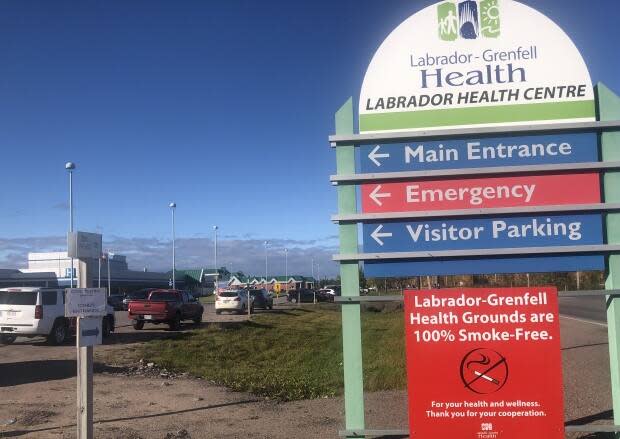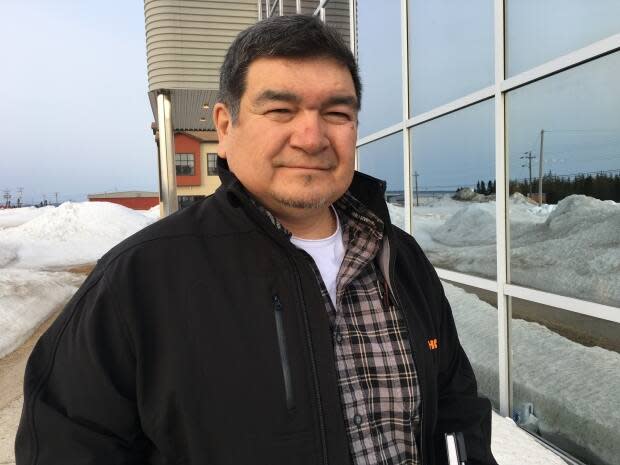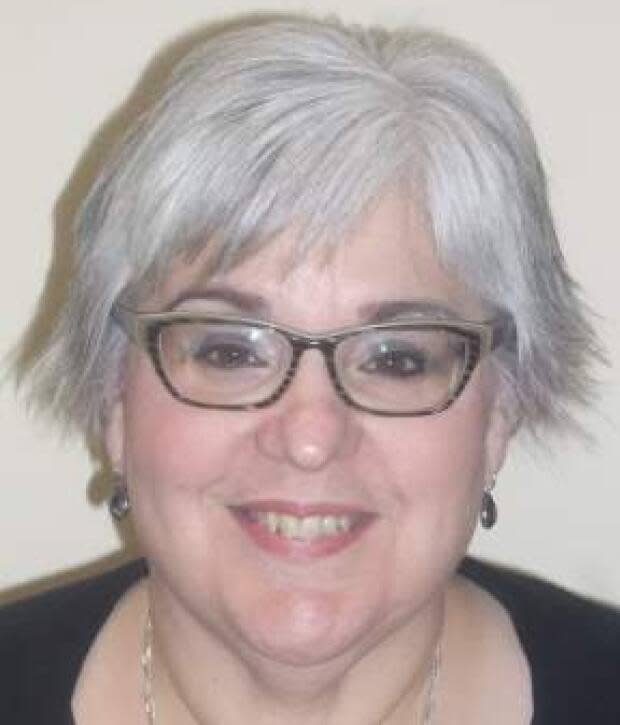Treatment of Innu teen in Labrador health system cause for concern, former MP says

Members of the Innu Nation are voicing their concerns over equality in the Labrador-Grenfell Health system after a teenager with a collapsed lung was driven to hospital in his mother's vehicle instead of an ambulance.
"It's been happening for a long time now. There's a lot of stories out there in both communities, Sheshatshiu and Natuashish. But it's gone too far," Innu Nation Grand Chief Etienne Rich said Friday.
The call comes after former Labrador MP Peter Penashue voiced his concerns after his grandson, Meshkuss, was sent to the community clinic in Sheshatshiu after his lung collapsed. After being advised to bring him to the hospital in Happy Valley-Goose Bay, the family learned an ambulance wouldn't be available to bring him there.
Penashue said his grandson was then released from the clinic and moved into his mother's car, where he was driven to hospital while experiencing breathing difficulties. He said the teenager is now recovering in St. John's.
While the story ends with his grandson getting proper treatment, he said it serves as the latest chapter in the story of how the Innu are treated in the health system.
"In my view, it's very inhumane the way he was treated," Penashue told CBC's Labrador Morning earlier this month. "He should have been brought to the general hospital in Goose Bay in an ambulance, and if the ambulance wasn't available he should have been kept at the local clinic where oxygen is available and medical support is available.
"But to be released and sent to hospital in his mother's car is cruel and unusual punishment. I just can't imagine what [his mother] was going through for 40 minutes."

Both Penashue and Rich say the story isn't unique, and that they have heard similar stories of unequal treatment within the health system. Penashue said he feels the conversations on the subject are often ignored, accounting it to a form of unconscious bias.
"I'm of the view that Innu people are treated very differently, and sometimes people who have these attitudes have no idea that they have these attitudes towards the Innu people," he said. "That's just a general view of the people … and that really reflects how you treat your patients."
"We need to find a way to have a conversation, because it's really visible in the service sector."
Equality, respect 'a priority,' health authority CEO says
Rich recently brought his concerns to the health authority in a meeting with Labrador-Grenfell Health CEO Heather Brown, one he said was long overdue.
"I'm really looking forward to moving forward.… It's time to take action. We've been saying that for so many years," he said.
Before the meeting, Brown told CBC News the health authority is focused on collaboration with the Innu Nation and other Indigenous groups along with helping to promote understanding and awareness among healthcare professionals.

"We really have to recognize the existence of racism, and the continuum of discrimination and racism right across the country in healthcare and here at Labrador-Grenfell Health," Brown said.
"That's going to take a long time to make changes, but we're working together."
Brown said efforts are ongoing to help educate staff and to support those who come forward with concerns. She added she is open to the idea of visiting Sheshatshiu and Natuashish to hear people's concerns firsthand.
"We do want to create opportunities to hear, and we need to hear," she said.
"It's a priority, and we do want to get to a place when we ask people, how do you feel your care is provided, do you feel safe, do you feel respected, we want to get to a place where we hear that."

 Yahoo Movies
Yahoo Movies 